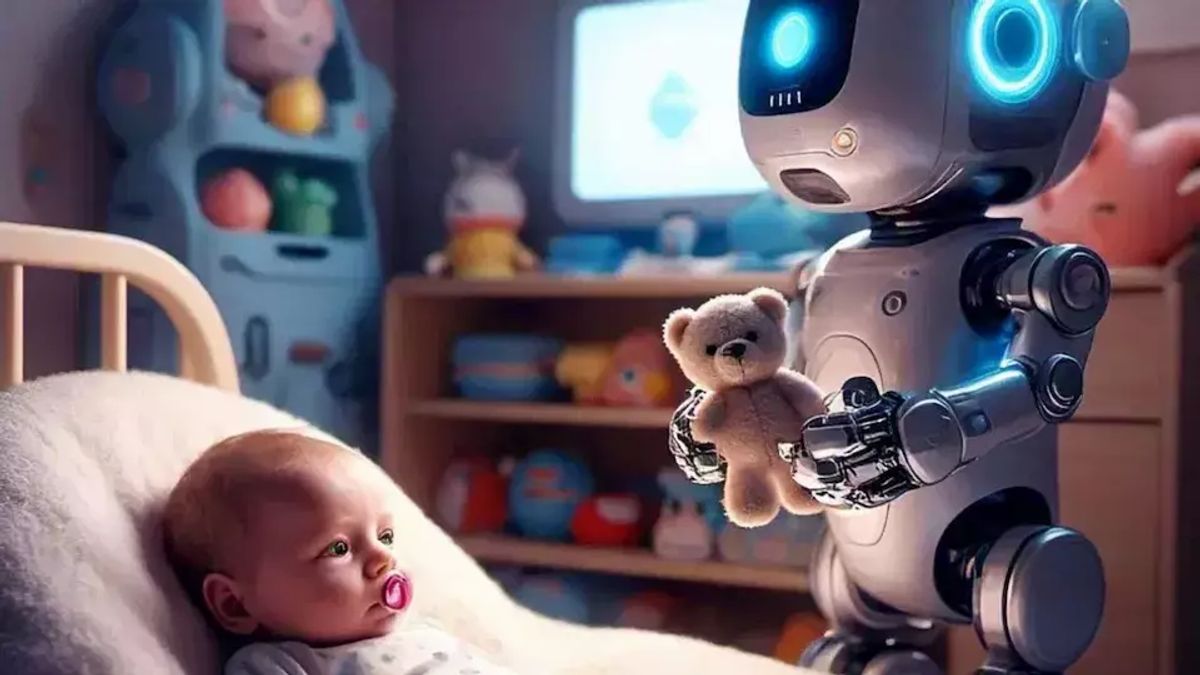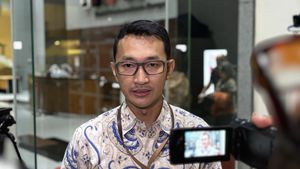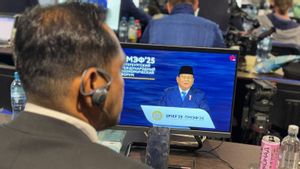JAKARTA Entering 2025, the world marks the beginning of a new era: the Beta Generation. Children born from this year to 2039 will be part of a growing generation in a world that is increasingly connected to technology and faces revolutionary cultural and social changes.
Quoted from IFL Science, Mark McCrindle, a social and futurist researcher who also created the term Generation Alpha, said that this transition marks a new chapter in human history. According to him, the Beta Generation will develop along with the latest technologies, such as artificial intelligence (AI), virtual experiences, and advanced automation.
"The Beta Generation is likely to be the first generation to experience massive autonomous transportation, wearable health technology, and an immersive virtual environment as part of everyday life," McCrindle said.
The Beta generation are children from Millennials (born 1980 '1994) and Gen Z (born 1995'2009), who are already familiar with the technology-based world. However, the Beta Generation will go even further.
"The years of their formation will be marked by extreme personalization the AI algorithm will regulate how they learn, shop, and interact socially with unprecedented precision levels," McCrindle added.
In the future, the digital and physical world will be increasingly difficult to distinguish, where artificial intelligence and automation become commonplace. Driverless transport, usable medical devices, and virtual reality will become an integral part of their lives.
Even though they are accustomed to technology, the parents of the Beta Generation, namely Gen Z, are increasingly aware of the negative impact of technology, especially social media, on children's development.
Gen Z as a parent is more likely to emphasize the importance of limiting screen time for their children. They see the benefits of technology but are also aware of its risks and are starting to push for restrictions on access to technology for their children," McCrindle said.
The Beta generation will also face major challenges, such as climate change, global inequality, and world demographic shift. Their parents' values, who generally fight for diversity, equality, and sustainability, will affect their way of dealing with these issues.
Their approach to global issues will most likely reflect these values, which could encourage the creation of innovative solutions to the world's challenges, McCrindle said.
SEE ALSO:
In 2035, the Beta Generation is expected to cover about 16% of the world's population. This generation will not only witness rapid technological advances but also the main actors in social and environmental changes in the world that are increasingly complex.
With the end of the Alpha Generation era, the Beta Generation is now preparing to bring the world to a more digital, connected, and challenging future. How they navigate these challenges and opportunities will greatly determine the face of the world in the 21st century.
The English, Chinese, Japanese, Arabic, and French versions are automatically generated by the AI. So there may still be inaccuracies in translating, please always see Indonesian as our main language. (system supported by DigitalSiber.id)
















